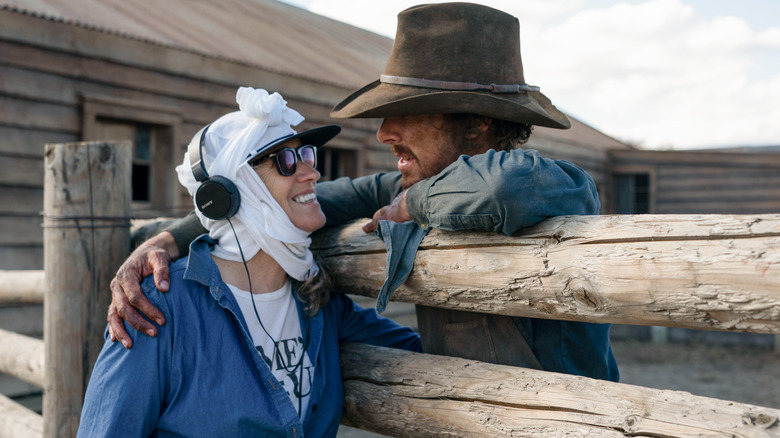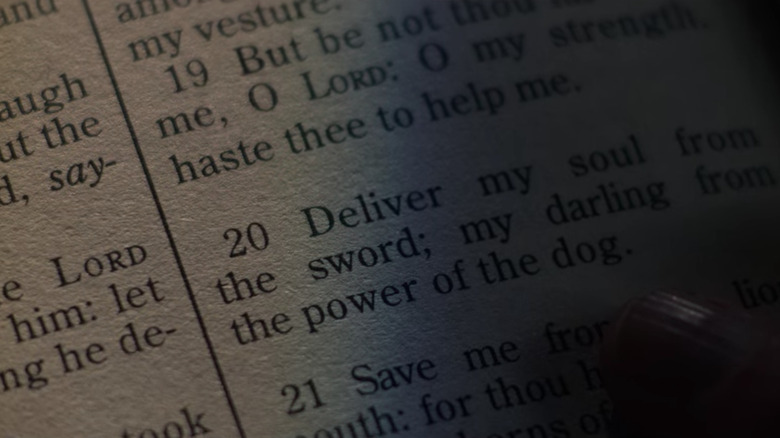The Power Of The Dog Ending Was Changed For The Better By Jane Campion
Oscar voters are feeling "The Power of the Dog," with Jane Campion's film having picked up 12 nominations, the most of any film this year. Campion herself is up for best director against Steven Spielberg for "West Side Story," which serves as a rematch of the 66th Academy Awards, when Spielberg won the award for "Schindler's List" over Campion for "The Piano." Campion may have an edge this time, however, in that her film is readily available on Netflix and has been for over two months, unlike some of the other films nominated, which have followed a more traditional release pattern, keeping them exclusive to theaters longer.
"The Power of the Dog" is a film that rewards attentive viewing and certainly merits a rewatch, since its ending reframes much of what the viewer has seen up to that point. Back in December, I dug into the ending and the clues Campion sprinkled along the way, but according to editor Peter Sciberras (who has earned his own Oscar nomination for "The Power of the Dog") there's another version of the ending that could have made it to the screen.
It goes without saying that major spoilers for "The Power of the Dog" follow.
Sciberras recently spoke with The Wrap, where he outlined this alternate ending, which would have come after Peter Gordon (Kodi Smit-McPhee) steps away from the window, where he's just watched his mother and stepfather — played by the real-life wife-and-husband acting duo of Kirsten Dunst and Jesse Plemons — embrace. Here's how Sciberras described the alternate ending:
"It was a slow pan across Peter's desk in his room, which showed a medical book on his desk. And then the camera landed on the definition of anthrax in the book. And that was the last shot of the film."
Campion was right to go with the ending she did
"The Power of the Dog" is based on a novel by Thomas Savage, and this alternate ending would have been closer to the one the book delivered, inasmuch as it would have spelled it out for the viewer more directly that Peter had poisoned Benedict Cumberbatch's character, Phil Burbank, in order to end Phil's reign of emotional terror over his mother. Sciberras observed that showing the definition of "anthrax" in a medical book is "the exact thing that the novel does."
As it is, Campion went with a more understated ending, which implies the very same thing without force-feeding it to the audience. And we still get something similar to that moment with the book when Campion shows Peter reading the Bible verse that gives the film its title: "Deliver my soul from the sword; my darling from the power of the dog."
As I wrote back in December, "The Power of the Dog" is "a mesmerizing tale that asks the viewer to see the hidden shape in it, much like Phil and Peter see the shadow of a barking dog in the mountains." Campion's film is currently streaming on Netflix.

